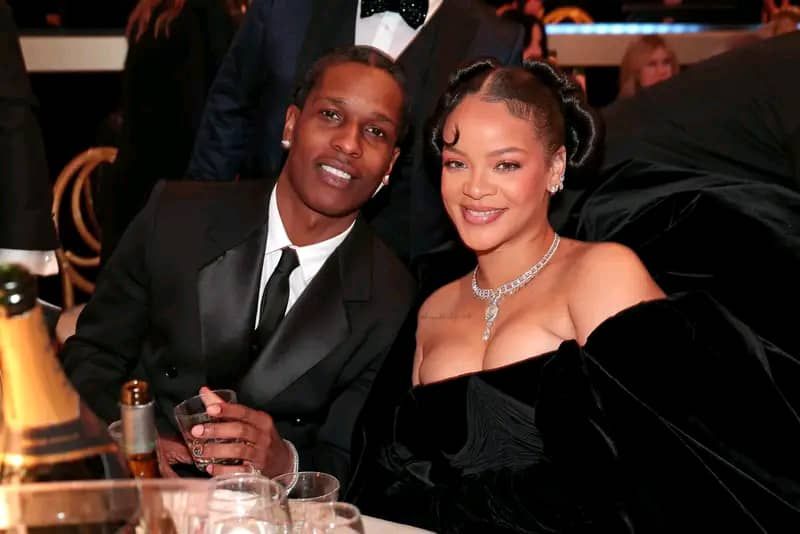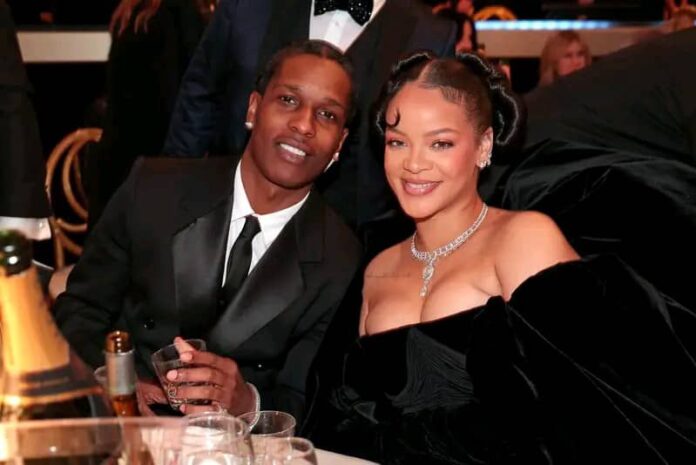By Burnett Munthali
A storm of controversy has erupted on social media following a livestream in which an OnlyFans model made a sensational claim about rapper A$AP Rocky.
The model, whose identity has not yet been verified, alleged that she had a private and intimate encounter with A$AP Rocky.
This claim was made during a livestream that has since gone viral, attracting thousands of views and generating heated debates online.
The timing of the alleged hookup has intensified the public response, as A$AP Rocky is currently in a high-profile relationship with global pop superstar Rihanna.

Fans of both celebrities have taken to social media to express disbelief, outrage, and curiosity regarding the allegations.
Some users have rushed to defend A$AP Rocky, dismissing the model’s claims as attention-seeking behavior.
Others have criticized him harshly, especially given the ongoing public image of a devoted partner and father alongside Rihanna.
The model provided no concrete evidence during the livestream, yet her confident tone and detailed storytelling sparked speculation.
She described the alleged encounter vividly, suggesting it occurred while A$AP Rocky and Rihanna were still together.
Her statements have reignited long-standing conversations about the risks and responsibilities of celebrity relationships in the digital age.
Neither A$AP Rocky nor Rihanna has responded publicly to the accusations as of this writing.
Representatives for both celebrities have also remained silent, adding to the mystery and speculation surrounding the story.
Celebrity news outlets and blogs have since picked up the story, amplifying its reach and polarizing fans even further.
Some analysts have noted that this incident underscores the growing power of platforms like OnlyFans and livestreaming apps to influence public perception.
The ability for individuals to reach global audiences instantly means that rumors and allegations—true or not—can spread rapidly and irreversibly.
This case also raises questions about boundaries, privacy, and the ethics of revealing alleged private interactions without the consent of the other party involved.
Critics have warned that even if the claims are false, the reputational damage may already be done.
Others argue that if there is truth to the claims, it raises serious questions about fidelity, trust, and celebrity accountability.
Meanwhile, supporters of Rihanna have expressed sympathy, with some even calling for her to address the situation publicly.
On the other side, some of A$AP Rocky’s fans insist the model should provide proof or stop spreading what they label as “clout-chasing lies.”
The model has since gained a surge of online followers, with her social media pages experiencing significant growth in engagement.
This has led some to accuse her of using the controversy as a calculated move to gain fame and attention.
Whatever the truth may be, the story illustrates the volatile intersection of fame, relationships, and digital media.
It also reflects the modern-day struggle celebrities face in maintaining personal privacy while living under a constant public spotlight.
As the internet continues to dissect the story, many await an official response from either A$AP Rocky or Rihanna.
Until then, the debate rages on—highlighting both society’s fascination with celebrity drama and the power of a single voice in the age of instant media.



